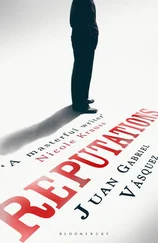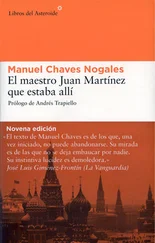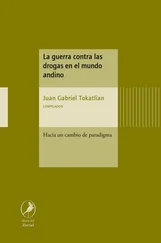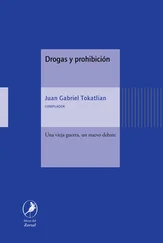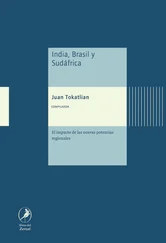Georges looked down. Dry leaves were piling up beside the stone wall. He tried to exaggerate an impatient face so it would be visible in the half-light.
“And why you? What do you have to do with this?”
“You told me yourself that he talked about me on the way to the hunt. He’s been in a bad way for a long time, everybody told us. And it’s as if what happened before banned us from worrying, you know?”
“No,” said Georges. “What you’re saying is absurd.”
“He was our friend. And we haven’t allowed ourselves to take him seriously, to lend him a hand. As if what happened before would come back, what a couple of idiots. Jean wants to talk to me, but I’m not going alone. Will you come with me?”
Georges did not cushion the harshness of his words. He felt contemptible and, without knowing why, also felt that he didn’t deserve Charlotte. But that didn’t stop him from saying what he was going to say.
“No. It’s late. I’m tired and we’ll have more than enough tomorrow.”
Charlotte looked distressed. She spoke to him of the man who had wanted to escape this life, of the terrible confirmation that it was another life he would have liked to live and hadn’t. Charlotte accepted that it was stupid, but in the past few years she had wondered what fault any of this was of hers; she had asked herself so often that now she couldn’t help devoting all her attention to him: to try to accompany Xavier, even if only in spirit. Georges turned away as if to cut off his wife’s words, because the mention of the spirit invoked for him, through some sort of piercing contradiction or terrible irony, the map of the Islands of Pleasure. On the lawn a rectangle of a more lively green was projected. Georges felt something fuzzy rising in his throat. He held his breath, and the nausea descended. He spoke to the silhouette’s shadow.
“I’m going to be on the tractor for a while longer.”
“I’m not going to go alone, dear. Won’t you come with me?”
“No,” he said. “It’s your affair.”
—
INSTEAD OF WALKING toward the orange shape of the tractor, he went around the house by the shed side and found, in the middle of the rough carpet of stable sawdust, Xavier’s Porsche. For a moment, he wanted to sit inside it, but then the idea struck him as macabre. He leaned on the boot; the darkness was total. “Do you know what that means?” Charlotte had said to him. “Regretting now, at the age of seventy, the life one’s chosen?” Of course, she’d said, it was hard for him to see all that: for him things had come out well, like for a poker player. A few years or months or days ago, even just yesterday, Georges would have said: This is what all past life is, the results of an ongoing strategy.
Now he wasn’t so sure. But he had a hunch: the past would become imagining Xavier wearing his father’s hunting jacket, a Frenchman who’d belonged to the louveterie and devoted his life to hunting wolves. Because that was a man, the clothes of those who’d gone before, and Xavier’s were heroic clothes: imagining him like that, romantically dressed up as a gentleman of bygone days, could justify Charlotte’s feeling attracted to him. But that tranquillity was artificial. Meanwhile, neither they nor anybody else could guess what had gone through Xavier’s mind. Maybe it was absurd to think he’d killed himself over her, but everything in Charlotte’s words seemed to suggest that. Now, it seemed obvious to Georges that only her sense of decency had prevented his wife from confessing that certainty. One doesn’t reach such decisions by chance, that was true. But to think of such a long-ago cause… Did that really happen? Did men really kill themselves for love, and for long-past love affairs? What surprised him most was how Xavier’s image began to change: he could no longer remember him as he was, those memories were already contaminated by his suicide. Georges admired the courage: not just of putting the barrel of a gun beneath one’s face (just one traditional barrel; Xavier had not succumbed to the fashion for double-barreled shotguns), but seeing himself reflected, a second before, in the death of a dog, and carrying on with the process of one’s own death. It was incredible what frustrated love could do to a man. It could track him, the way dogs tracked the trail of the scent of prey (a wolf, for example), and hold him at bay. Georges, too, standing on the sawdust-covered floor, was a man at bay. He imagined Jean’s phone call, the questions he would have asked Charlotte, that woman his father had loved. Georges hated him: he hated him for involving his wife in all that. Then he retched again, and this time, without kneeling, Georges threw up watery bile smelling of wine and stale bread.
—
WHEN HE WENT BACK to the house, it was after eleven, and Charlotte, perhaps, would be asleep. Georges preferred to stay downstairs. A long time had passed since the last time he hadn’t said good night to his wife — both beneath the covers, he overcome by weariness and she trying to read a couple more pages of some Montherlant novel — in the way routine prescribed. He imagined Charlotte was still dressed. Ready to go out, he thought, ready to go and see Xavier no matter how late.
He knew he loved her. He had always loved her, even when he found out about the deception. Now those episodes came back as if fresh, with that terrible attribute the past has of never passing, of staying here, and keeping us company. How could he have prevented it? How comfortable the future was, that future people so feared. Of course, they ignored how difficult the pain of the past was and the memory of that pain, because it was like clothes that have fallen in the hay in summer and keep scratching your neck and back all day long.
The previous night, after Xavier had left, Georges had spent a couple of lazy hours cleaning his Browning, using silicone to repair a frayed strap, brushing the buttons on his hunting jacket. The implements hadn’t been put away, and were still there, looking at him as if they’d warned him that today would be special and it would be better to stay home, that he should have made up some excuse to not go out boar hunting. He looked for the biscuit tin that he’d used to store ammunition as long as he could remember and took it into the kitchen. He put the kettle on, and the air smelled of gas and then burned match. While he was waiting, Georges began to organize the cartridges and bullets that got mixed up over time or just stayed there, on the windowsill and in the cutlery drawer, making the reality that no children lived in this house unmistakable. When he had all the 8x57s in a single pile, the kettle began to fret on the stove. Georges put a lemon tea bag in a thick glass, striped from use, and let two sugar cubes dissolve in the boiling water. With the biscuit tin in one hand and the glass of tea in the other, he went to sit beside the telephone. He took out the map of the Islands of Pleasure; for the first time he looked at it closely. Water flowed around a circle, and in the water two fish swam, one coming and one going, one trying endlessly to catch up to the other, but it was impossible to tell from the drawing which one was chasing and which escaping its pursuer. Georges turned the photocopy over and wrote on the back in pencil:
Charlotte Lemoine
Xavier Moré
Georges Lemoine (me)
Charlotte
Georges
Xavier (him)
To have lost her forever
Never to have been with her
He heard dogs barking, far away and distorted by the echo. Their house seemed different at night, and this silence, through which he usually slept, now stimulated him, made him tense and alert, aware of the whole world. He saw his reflection in the windowpane, translucent like a negative; he saw the shadow of the guns in their rack, like billiard cues, steady and disciplined. Perhaps overwhelmed by detail, in a mental atmosphere too similar to that of an opium addict, Georges did not pick up the phone at the first ring — he might have confused it with the barking, or he might not have heard it — and when he did, the black receiver fell asleep in his hand. Jean’s voice called from the other end of the line, serious, electronic, disconsolate.
Читать дальше

